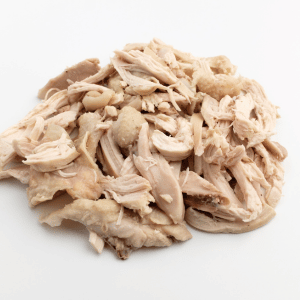4 Safe At-Home Remedies for Upset Tummy in Pets
- Caméa Allen

- Sep 24
- 4 min read
Upset stomachs happen to both cats and dogs. Most of the time, stomach upset in pets is temporary but, even then, it can be worrying for Yorktown area pet parents. Vomiting, diarrhea, or a loss of appetite are all signs that something is off with a pet's digestive system. While an upset tummy in pets may resolve on its own, there are safe strategies you can use to support your pet’s recovery at home. Of course, it’s essential to monitor closely for signs of worsening illness, especially in puppies, kittens, and senior pets, who are more susceptible to dehydration and complications. Let's discuss!

1) Fasting
One of the first steps in easing stomach upset is allowing your pet’s digestive system to rest. Short periods of fasting, usually 12 to 24 hours for adult dogs and 6 to 12 hours for cats, can give the gastrointestinal tract a much‑needed break.
Fasting helps reduce further irritation from food and allows the body to settle. Be sure fresh water is always available during fasting to prevent dehydration. Also, do not fast very young pets, seniors, or pets with underlying health conditions without consulting a veterinarian.

2) A Bland Food Diet
Introducing a bland food diet can also help your pet's tummy reset, with or without a fasting period. A bland diet for dogs might include plain boiled chicken breast or lean ground turkey mixed with white rice. Cats may accept boiled chicken or turkey mixed with a bit of rice or pumpkin. Never season bland food diets with salt, pepper, and other seasonings, as they will likely further irritate the stomach. Avoid as much fat as possible to give the pancreas a break, too.
Keep in mind, when the stomach is upset, feeding small amounts several times a day is better than one large meal. Bland food diets should continue for a few days before gradually reintroducing your pet’s regular food a little at a time. Two Rivers Vet Clinic offers a helpful guide on bland food diets for cats and dogs here.

3) Slippery Elm
Slippery elm is an herbal supplement that can soothe the digestive tract. It contains mucilage, a gel‑like substance that coats and calms irritated stomach and intestinal linings.
Many pet parents successfully use powdered slippery elm mixed with water or added to food during bouts of stomach upset. It may help ease diarrhea and vomiting, though it should only be used in appropriate doses.
Kara of Raw Remedies Health uses the NOW brand of Slippery Elm on Amazon, which offers powder or capsules. She uses 1/4 tsp per 10 lb of dog twice daily. She says her dog, Copper, consistently responds well to this supplement if he has acute diarrhea or GI upset.
If you purchase the capsules, you can open them, but the powder tends to be a better value for pets because you aren't paying for the cost of packaging the product into capsules.

4) Pumpkin
Plain canned pumpkin (not pumpkin pie filling) is another helpful addition to a recovery diet. Its natural fiber content can aid both diarrhea and constipation by supporting regular digestion. A spoonful for cats or a few spoonfuls for dogs, depending on size, can provide gentle relief.
I recommend always starting with small amounts and adjusting to your pet’s response. Pumpkin adds bulk, so we don't want to overdo it and cause digestive issues like constipation.

Upset Tummy in Pets & Dehydration
One of the biggest risks of vomiting and diarrhea is dehydration. Signs to look out for include:
Lethargy or unusual sleepiness
Dry, sticky gums
Sunken eyes
Skin that, when gently lifted, does not quickly return to place
Puppies, kittens, and senior pets are much more vulnerable to dehydration because their bodies cannot regulate fluid balance as effectively. Even a short bout of diarrhea or vomiting may become dangerous for them.
When to Call the Veterinarian
If your pet’s upset stomach lasts longer than 24 hours, if symptoms become severe, or if your pet cannot even keep water down, it’s time to seek veterinary care. Continuous vomiting, bloody diarrhea, or refusal to eat or drink can all signal something more serious.
While mild digestive upset may pass with rest, hydration, and gentle dietary support, quick veterinary attention is the safest path if symptoms linger or worsen. Thankfully, with careful monitoring and the right care, most cats and dogs bounce back quickly from an upset tummy.
The Best Care for Yorktown Area Cats & Dogs
Hearts at Home Pet Sitting has been providing trusted, professional dog walking, dog sitting, and cat sitting in the Yorktown, Poquoson, Newport News, and Hampton, Virginia areas since 2012. To register your pet(s) or home with us, please complete a new client questionnaire here. Existing clients may request services here.
Please visit our website or contact us by email at Hello@HeartsAtHomePetSitting.com or by phone at 757-745-9868 to learn more.
Those outside our service area are encouraged to find a pet sitter near you at the Pet Sitters International or National Association of Professional Pet Sitters websites.




Comments